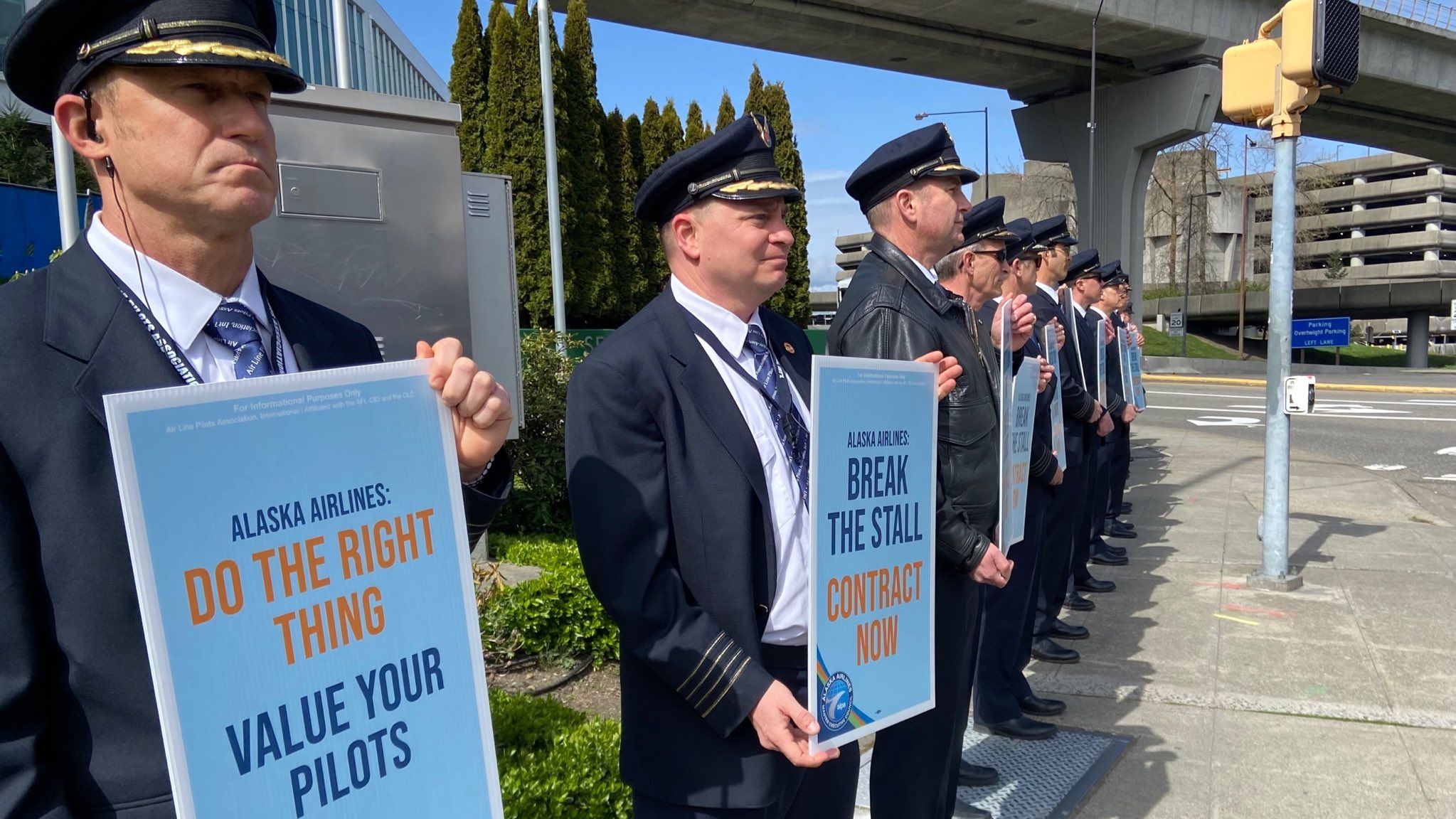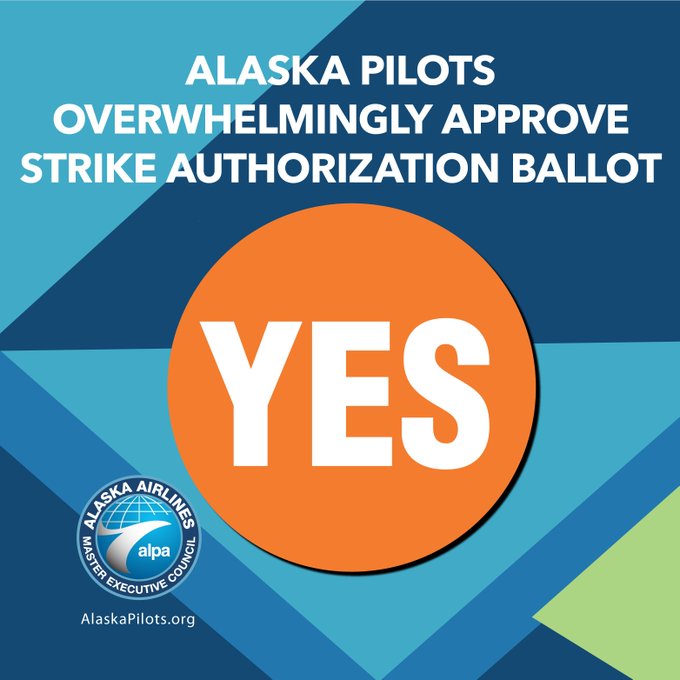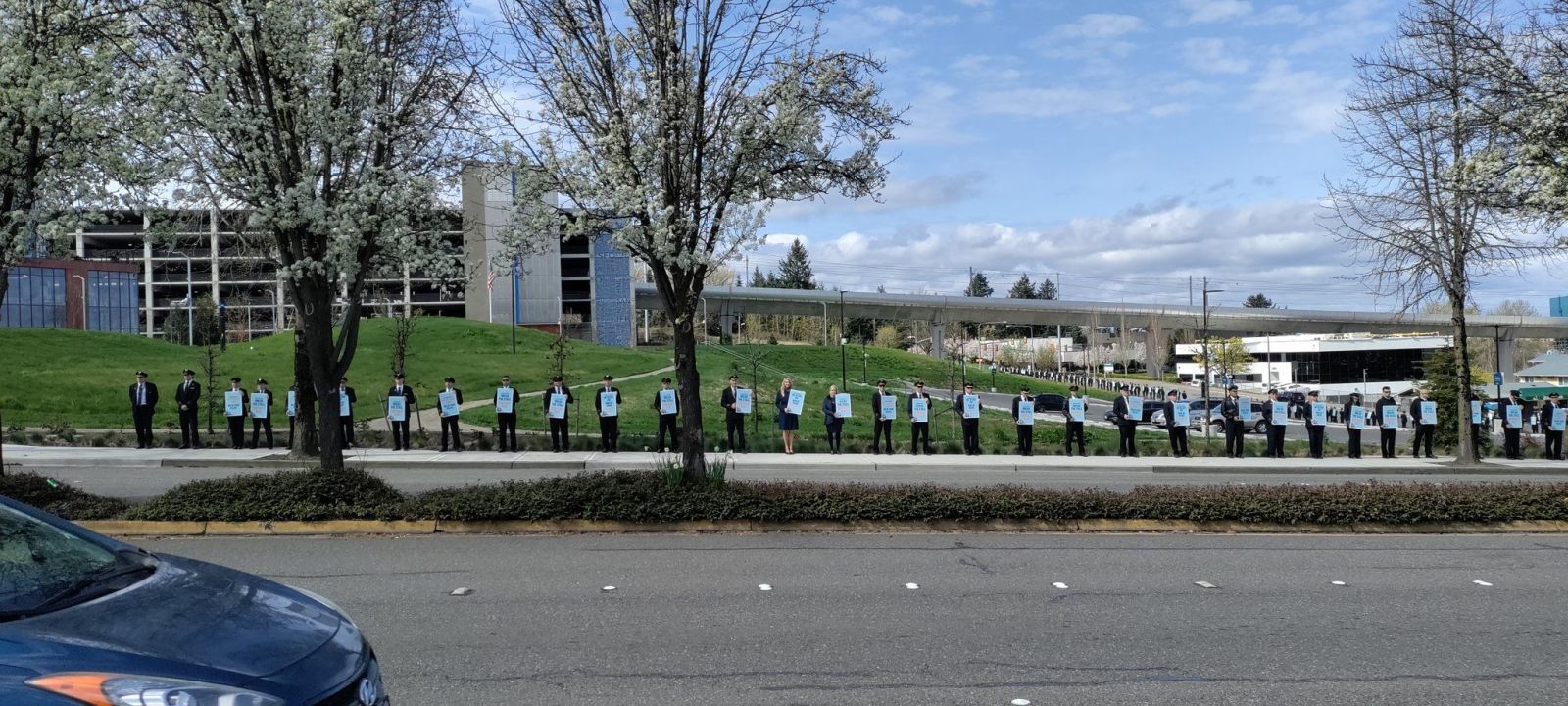


A month ago, they kept it low by saying #dotherightthing ! Alaska Air pilots stood with a series of informational pickets to negotiate on "Better pay package , job security , stronger work rules and enhanced quality-of-life provisions ” such as flexibility and reasonable schedules with tags #ValueAlaskaPilots .
They also said , It’s been three yrs of contract negotiations, yet management has not meaningfully addressed the pilots' contract concerns.
This may not be related but around 30 Alaska Airlines flights were canceled in or out of Seattle-Tacoma International Airport on Monday and Tuesday, just as the Carrier's pilots began voting on whether or not to authorize a strike.
But , now seems to be a critical step , as they plan to shut down the operations. They have also released a press release conveying their concerns.
Alaska Airlines pilots, represented by the Air Line Pilots Association, Int’l (ALPA) , said firmly today that they’re willing to strike if agreement on a new employment contract cannot be reached.

With nearly 96 percent of members participating, an overwhelming 99 percent of Alaska pilots authorized union leaders to call a strike if necessary and when the parties are permitted by the National Mediation Board (NMB) to take that action.
The vote follows informational picketing last month where over 1,500 off-duty pilots, nearly half of the pilots employed by the airline, and their supporters, lined airports and streets at every Alaska Airlines base, the largest event of its kind in ALPA’s history.

“For three years, Alaska pilots have been resolved in their commitment to reach a new agreement and today, we spoke with one unified voice, just like we did with our recent informational picketing event,” said Capt. Will McQuillen, chairman of the Alaska Airlines ALPA Master Executive Council."
“For years, we have been working toward a market-based contract with reasonable solutions that address work rules, scheduling flexibility, and career-security issues that pilots at other companies enjoy, not a strike. Now is the time for management to respond and engage constructively at the bargaining table.”
Before a strike can take place, the NMB must first decide that additional mediation efforts would not be productive and offer the parties an opportunity to arbitrate the contract dispute.
If either side declines the arbitration, both parties enter a 30-day “cooling off” period, after which pilots and management can engage in self-help—a strike by the union or a lockout by management.
Source :ALPA.
